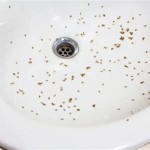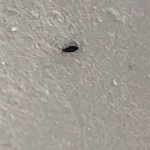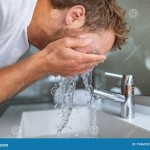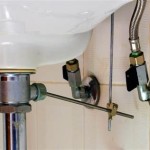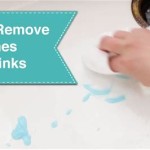Best Way to Clean Mold Off Bathroom Tiles
Mold growth in bathrooms is a common problem due to the consistently damp and humid environment. Not only is mold unsightly, but it can also pose health risks, particularly for individuals with allergies or respiratory issues. Therefore, regular cleaning and mold removal are essential for maintaining a healthy and hygienic bathroom.
Identifying Mold Growth
Mold typically appears as black, green, brown, or grey patches or spots on grout, caulk, and tile surfaces. It often has a musty odor. Accurate identification is crucial as mildew, which is a type of surface mold, can sometimes be mistaken for regular dirt or grime. Mildew is typically powdery or fluffy, while more established mold growth may appear slimy or fuzzy.
Safety Precautions
Before beginning any mold removal process, it's important to take necessary safety precautions. Wear protective gloves and safety glasses to prevent skin and eye irritation from cleaning solutions and mold spores. Ensure adequate ventilation by opening a window or running an exhaust fan to minimize inhalation of mold spores. For larger areas of mold, or if you suspect black mold (Stachybotrys chartarum), consult with a professional mold remediation specialist.
Cleaning Solutions for Mold Removal
Several effective cleaning solutions can be used to eliminate mold from bathroom tiles. White vinegar is a natural and readily available option. Its acidic properties help to kill mold and inhibit its regrowth. A solution of equal parts water and vinegar can be sprayed directly onto the affected areas and left to sit for an hour before scrubbing with a brush and rinsing thoroughly. Baking soda is another environmentally friendly option. A paste of baking soda and water can be applied to molded areas, left for a few minutes, then scrubbed and rinsed. Commercial mold and mildew cleaners are also available and can be particularly effective for stubborn mold growth. Always follow the manufacturer's instructions carefully when using these products.
Effective Cleaning Techniques
Specific cleaning techniques can enhance the effectiveness of mold removal. For grout and tile surfaces, a stiff-bristled brush, such as a grout brush or an old toothbrush, is ideal for scrubbing away mold. Avoid using abrasive cleaners or scouring pads, as these can scratch the tile surface. For larger areas, a scrubbing sponge can be used. After scrubbing, rinse the area thoroughly with clean water to remove any remaining cleaning solution and mold debris.
Preventing Future Mold Growth
After removing existing mold, preventative measures are essential to inhibit future growth. Controlling moisture is key. Ensure adequate ventilation by running an exhaust fan during and after showers and baths. Repair any leaks promptly to prevent water accumulation. Wipe down shower walls and floors after each use to remove excess moisture. Regularly clean bathroom surfaces with a mold-inhibiting cleaner to discourage mold growth.
Maintaining Clean Grout
Grout is particularly susceptible to mold growth due to its porous nature. Regular cleaning and sealing can help to prevent mold from taking hold. A grout sealer creates a barrier that prevents moisture and mold spores from penetrating the grout. Apply grout sealer according to the manufacturer's instructions. Reapplication may be necessary periodically, depending on the type of sealer and the frequency of bathroom use.
Improving Bathroom Ventilation
Adequate ventilation is crucial for preventing mold growth. If a bathroom lacks proper ventilation, consider installing or upgrading an exhaust fan. Ensure the fan vents directly to the outside and not into the attic or other enclosed spaces. Increasing airflow by opening a window during and after showering can also help to reduce humidity levels.
Addressing Underlying Moisture Problems
In some cases, persistent mold growth may indicate underlying moisture problems, such as leaky pipes or inadequate waterproofing. Addressing these issues is essential for long-term mold prevention. If you suspect a leak, it's important to have it repaired by a qualified plumber. If the problem is related to inadequate waterproofing, consult with a professional to assess the situation and recommend appropriate solutions.

How Do I Remove Black Mould From Shower Floor

Black Mold In The Shower How To Clean It Kitchen With Matt

How To Clean Mold In Shower Grout Tips And Tricks Certified Care

Black Mold In The Shower Here S How To Remove It Help For You

Black Mold In The Shower How To Clean It Kitchen With Matt

How Can I Clean Mildew From Grout Puroclean Hq

How To Remove Mold From Shower Caulk Or Tile Grout Fabulously Clean

What Is The Best Way To Clean Shower Grout Mold Anita S Housekeeping

Black Mold In The Shower How To Clean It Kitchen With Matt

Cleaning Mrs Hinch Fans Share Easy Ways To Clean Tile Grout Express Co
Related Posts
